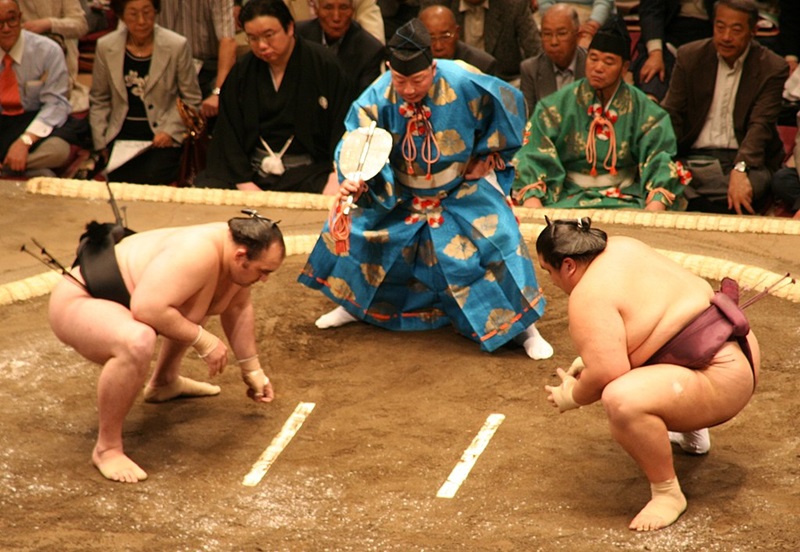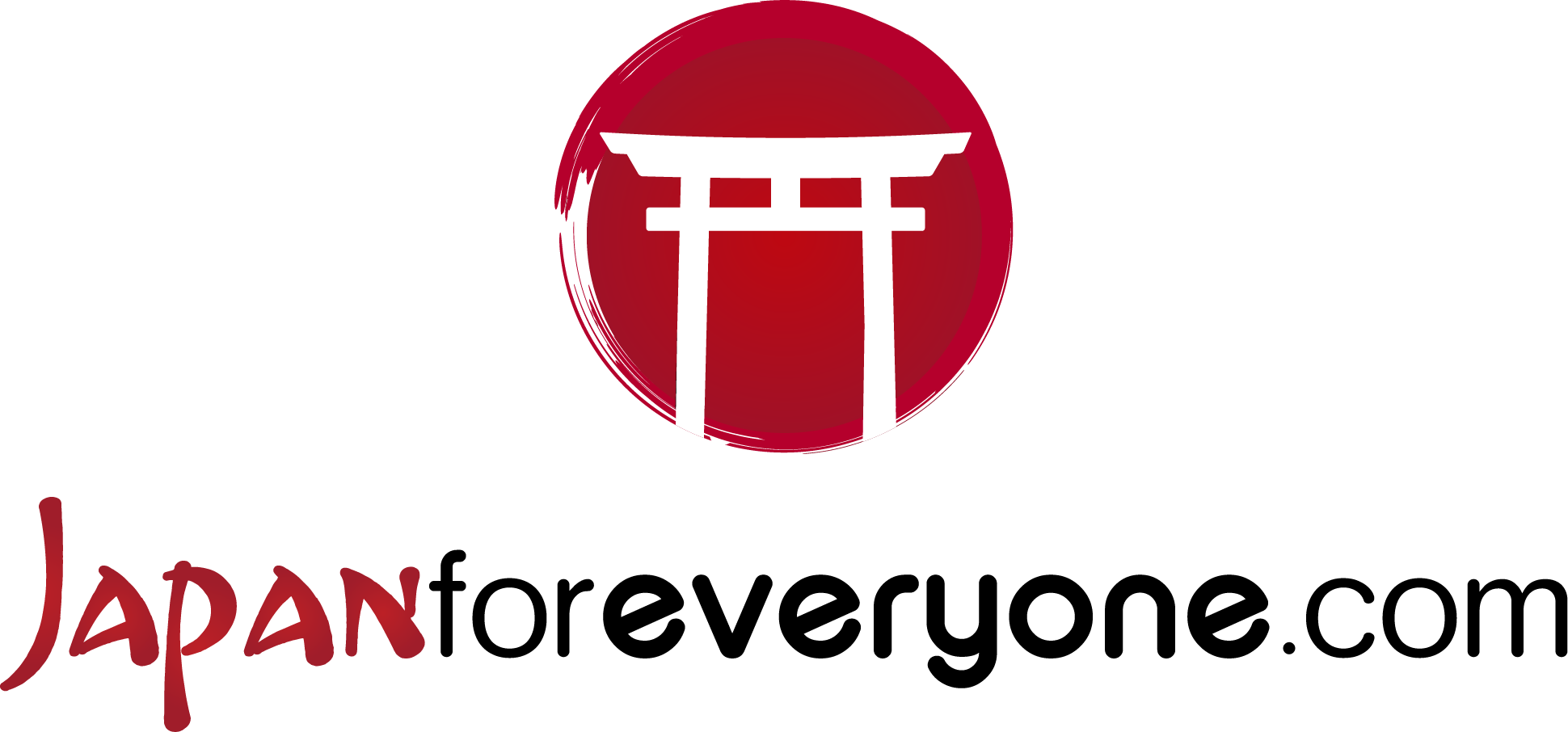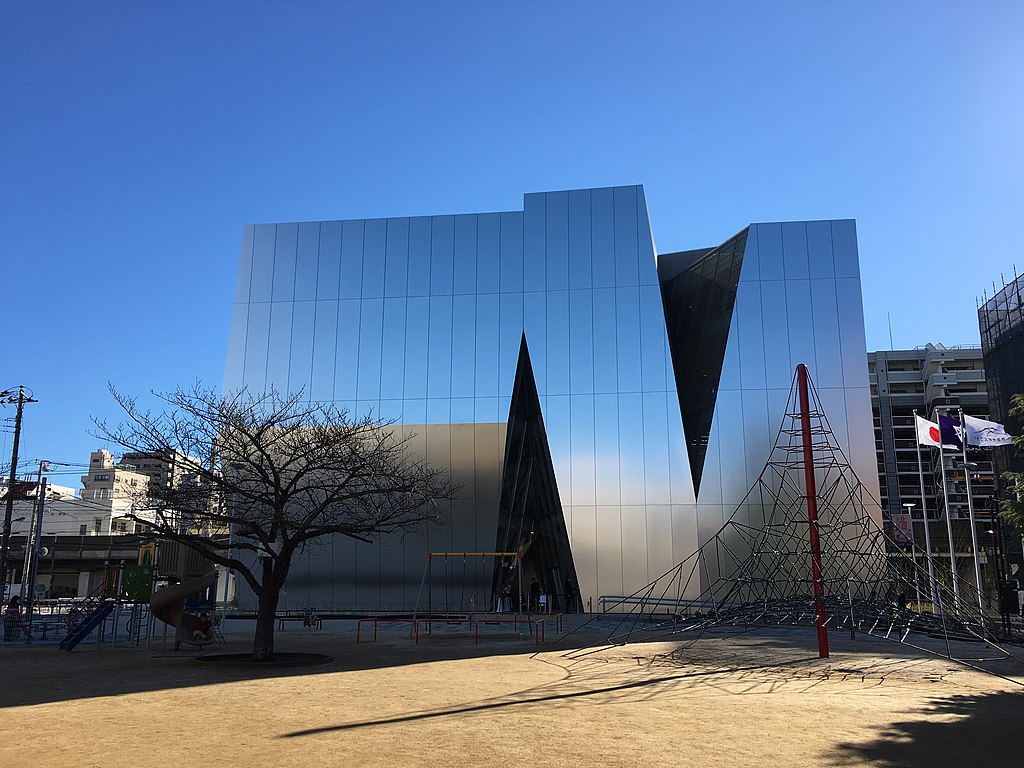What to do in Ryogoku
Ryogoku is the Sumo district of Tokyo.

Eckhard Pecher (Arcimboldo), CC BY 2.5, via Wikimedia Commons
How to get to Ryogoku
To reach Ryogoku, one can take the underground and get off at Ryogoku Station on the Oedo Line.
The area is also served by JR Ryogoku Station. It can be reached by taking the train on the JR Sobu Line from Shinjuku and Akihabara.
Kokugikan Sumo Stadium
The Kokugikan is a stadium in Tokyo where the major sumo tournaments in Japan are held. Inaugurated in 1985, the Kokugikan can seat up to 11,000 spectators and hosts the six sumo tournaments held each year. During the tournaments, spectators can watch spectacular sumo competitions and enjoy the unique atmosphere of Japanese sumo. The Kokugikan is a place of great historical and cultural significance for the Japanese nation and for sumo fans around the world.
江戸村のとくぞう, CC BY-SA 4.0, via Wikimedia Commons
Practical information
| View location on Google Maps | |
| Official website del Sumo |
|
| Museum | |
| 10:00-16:30 (last admission 16:00) | |
| Weekends National festivals During tournaments |
|
| Free Museum For sumo match tickets see the official website |
|
| 2 minutes’ walk north of JR Ryogoku station 5 minutes’ walk west of Ryogoku underground station (E12) |
Edo-Tokyo Museum
The Edo-Tokyo Museum is a museum in Tokyo that tells the history and culture of Tokyo, from its origins as a fishing village to the modern metropolis we know today. The museum has unique exhibits such as traditional costumes, artwork, maps, photographs and reconstructions of the old Edo city. With its vast collection of objects and materials, the Edo-Tokyo Museum offers visitors an educational and engaging experience of the history and culture of this fascinating Japanese city.
IMPORTANT: The museum will be closed until 2025 for renovation work.
Kakidai, CC BY-SA 3.0, via Wikimedia Commons
Practical information
| View location on Google Maps | |
| Official website |
|
| 9:30-17:30 (until 19:30 on Saturdays) | |
| Monday (or the following day if Monday is a national holiday) 28 December to 1 January |
|
| 600 Yen | |
| 2 minutes’ walk north of JR Ryogoku station 5 minutes’ walk west of Ryogoku underground station (E12) |
Tokyo Memorial Hall
Located in Yokoamicho Park, the memorial commemorates the victims of air raids during World War II.
Nick-D, CC BY-SA 4.0, via Wikimedia Commons
Practical information
| View location on Google Maps | |
| Yokoamicho Park Page |
|
| 9:00-17:00 (last entry at 16:30) | |
| Monday (or the following day if Monday is a national holiday) 29 December to 3 January |
|
| Free | |
| 5 minutes’ walk north of Ryogoku underground station (E12) 10 minutes’ walk north of JR Ryogoku station |
Memorial Museum of the Great Kanto Earthquake
The Great Kanto Earthquake Memorial Museum is located in Tokyo and tells the story of the earthquake that struck the Kanto area on 1 September 1923, killing more than 100,000 people. The museum offers visitors the opportunity to learn from past experiences through an extensive collection of photographs, videos, artefacts and interactive reconstructions. With its important educational mission, the Great Kanto Earthquake Memorial Museum is a symbolic place of reconstruction and resilience for the city of Tokyo.
Practical information
| View location on Google Maps | |
| Official website |
|
| 9:00-17:00 (last entry at 16:30) | |
| Monday (or the following day if Monday is a national holiday) 29 December to 3 January |
|
| Free | |
| 5 minutes’ walk north of Ryogoku underground station (E12) 10 minutes’ walk north of JR Ryogoku station |
Sumida Hokusai Museum
Opened in 2016, the Sumida Hokusai Museum in Tokyo is dedicated to the famous Japanese artist Hokusai, best known for his series of prints ‘Thirty-six Views of Mount Fuji’. The museum houses an extensive collection of artworks, including prints, books and paintings, which provide a comprehensive overview of Hokusai’s life and work. In addition, the museum regularly organises special exhibitions of contemporary artists and other Japanese masters. The Sumida Hokusai Museum is a must-see for fans of Japanese art and Hokusai.
Suginami, CC BY-SA 4.0, via Wikimedia Commons
Practical information
| View location on Google Maps | |
| Official website |
|
| 9:30-17:30 (last entry at 17:00) | |
| Monday (or the following day if Monday is a national holiday) New Year Holidays |
|
| 400 Yen (for temporary exhibitions the price is variable) | |
| 5 minutes’ walk east of Ryogoku underground station (E12) 10 minutes’ walk east of JR Ryogoku station |






